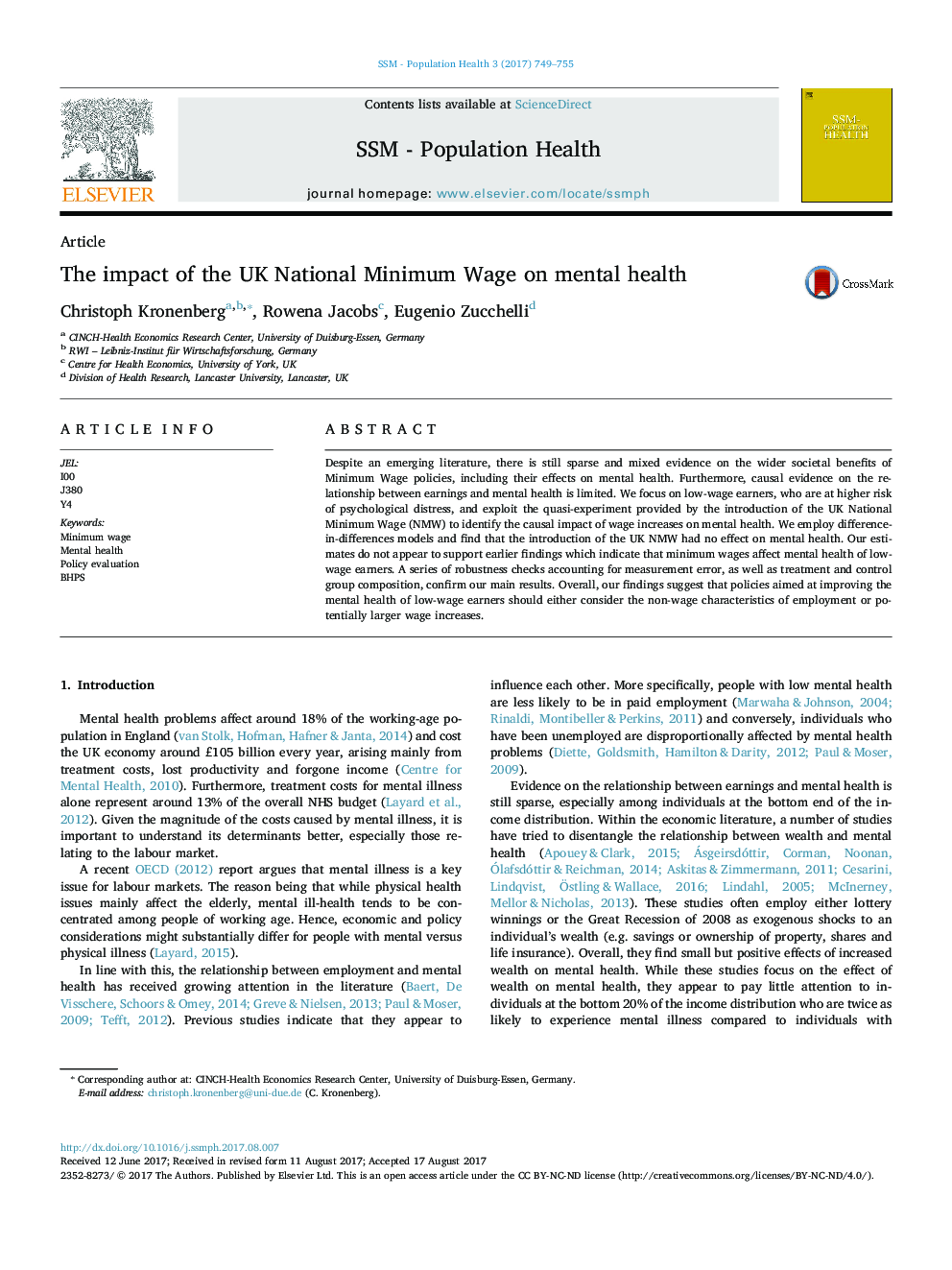| Article ID | Journal | Published Year | Pages | File Type |
|---|---|---|---|---|
| 5123308 | SSM - Population Health | 2017 | 7 Pages |
â¢There is limited evidence on the causal link between wages and mental health.â¢We employ the introduction of the UK National Minimum Wage as a natural experiment.â¢We estimate the causal impact of wage increases on mental health.â¢We focus on low-wage earners who are at higher risk of mental ill-health.â¢We do not find statistically significant effects of wage increases on mental health.
Despite an emerging literature, there is still sparse and mixed evidence on the wider societal benefits of Minimum Wage policies, including their effects on mental health. Furthermore, causal evidence on the relationship between earnings and mental health is limited. We focus on low-wage earners, who are at higher risk of psychological distress, and exploit the quasi-experiment provided by the introduction of the UK National Minimum Wage (NMW) to identify the causal impact of wage increases on mental health. We employ difference-in-differences models and find that the introduction of the UK NMW had no effect on mental health. Our estimates do not appear to support earlier findings which indicate that minimum wages affect mental health of low-wage earners. A series of robustness checks accounting for measurement error, as well as treatment and control group composition, confirm our main results. Overall, our findings suggest that policies aimed at improving the mental health of low-wage earners should either consider the non-wage characteristics of employment or potentially larger wage increases.
